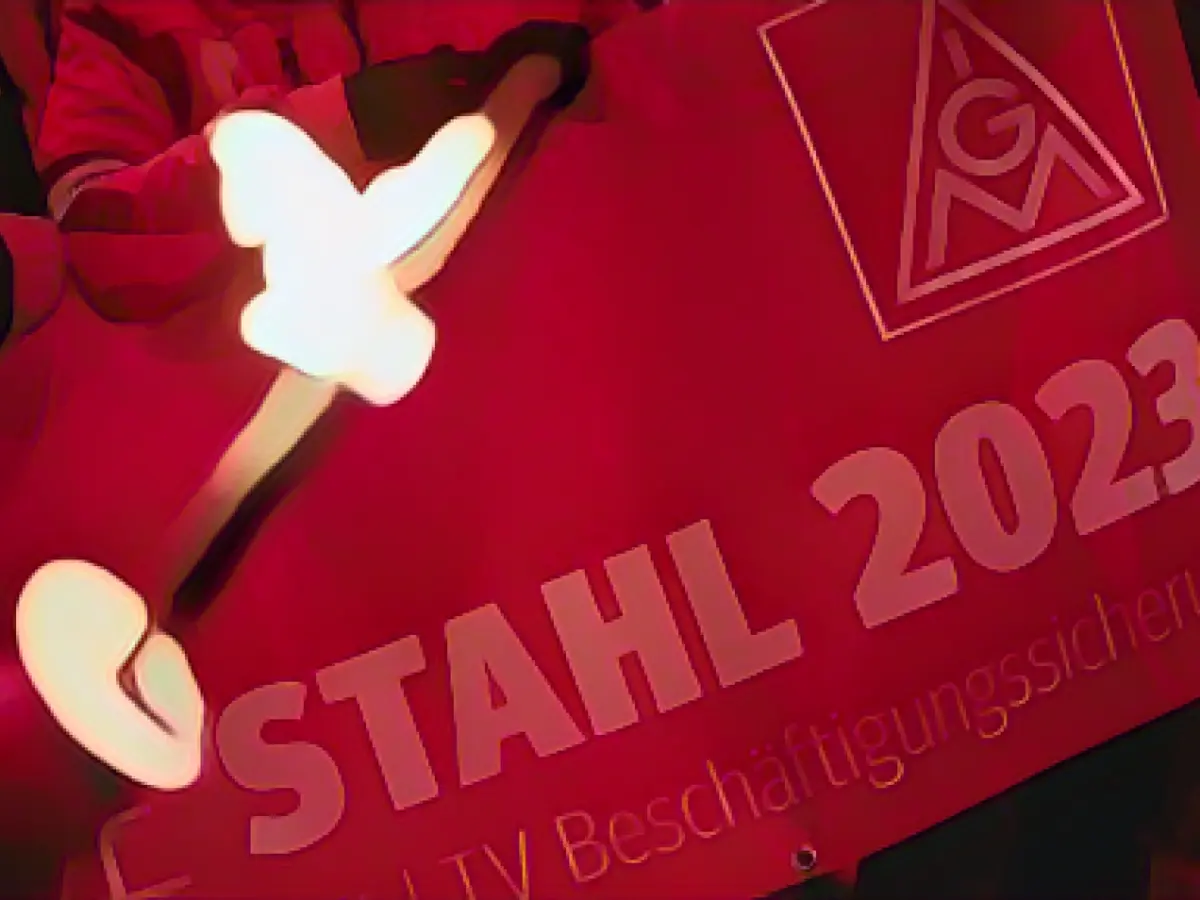Steel Industry Breakthrough: IG Metall Secures 32-hour Week, Bonus, and Wage Increase
Have you been keeping tabs on the steel industry in Germany? If not, here's a rundown of the latest developments. IG Metall, a prominent trade union, and the steel industry employers reached an agreement on a new collective wage settlement during intense negotiations. This pact ushers in a series of changes including wage hikes, shorter working hours, and bonus payments. Let's dive into the details!
What did the steel industry strive for?
The steel industry bargained for productivity enhancements as well as wage enhancements considering the ongoing shift towards climate neutrality. However, IG Metall pressured employers to accept a 32-hour work week with full pay compensation. Meanwhile, the first warning strikes in the steel sector rocked north-west Germany.
What gains did IG Metall achieve?
The new collective agreement incorporates two substantial inflation compensation bonuses totaling 3,000 euros, in addition to a 5.5% wage boost from January 2025. As for working hours, a reduction to up to 32 hours per week (partial compensation will be given to the employees) is on the cards to safeguard employment.
The agreement also enables employees to reduce their work hours to 33.6 hours per week under specific circumstances – an option primarily designed to lend greater job security to the industry during its metamorphosis.
When it comes to companies or their divisions that experience pressure on employment due to conversion, working hours can be lowered to 32 hours per week, subject to the standard 35-hour workweek prevalent across the industrial sector.
While IG Metall didn't manage to secure full wage compensation, they achieved payment of 33 hours for employees aged 60 and over who work shifts from 2025. This age limit will be successively lowered by one year in the years 2026 and 2027. Subsequently, the two parties to the collective agreement will evaluate this regulation in 2027.
Temporary overtime and the existing regulation
In case of additional demands, for instance, due to the temporary operations of ancient and modern technologies simultaneously, working hours can increment by up to three hours. The pre-existing overtime compensatory regulation will then apply.
The compensation will be distributed in stages: a 1,500 euros payment will be made in January, followed by a 150 euros payment in each month from February to November. Trainees will receive a 1,800 euros compensation payment, also distributed in stages.
Is the final outcome satisfactory?
The outcomes were appraised favorably by IG Metall representative and chief negotiator, Knut Giesler. He stated that securing employment in the face of transformation was a major triumph. Employees under pressure will have the chance to distribute the remaining tasks among themselves when employment is at risk, hence ensuring job security.
According to IG Metall board member, Nadine Boguslawski, this agreement sets forward a template for the steel sector. The options for working hours reduction with compensation releases the burden on older workers, whilst an optional 32-hour week paid for using these resources eases job security in an industry undergoing transition.
The employers also hailed the agreements as 'extremely positive'. Reiner Blaschek, the Chairman of the German Steel Employers’ Association, emphasized the collaborative effort that led to creating a work-hour and employment security regulation tailored for the environmental transformation. The regulation on individual working hours guarantees a degree of flexibility for the employees.
Blaschek, however, expressed concerns regarding the wages: "Given the increasingly volatile frame conditions for the German steel industry, the agreed upon wage rise pushes the companies to their limits," he pointed out. Giesler, on the other hand, regarded it as a 'sustainable increase in income'.








